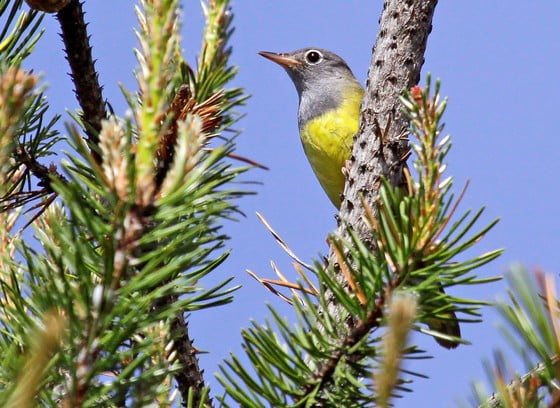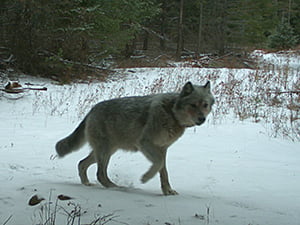
California’s black bears are waking up hungry from their winter downtime. To help minimize unwanted bear foraging behavior, the California Department of Fish and Wildlife (CDFW) is reminding those living in or visiting bear country to store food and dispose of garbage properly.
Black bears typically prefer remote mountainous areas. However, as more people frequent or live in natural bear habitat, the abundance of food and garbage associated with human activities is a temptation hungry bears find hard to resist.
“Over the years, we have seen bear behavior change significantly in areas where more people live and recreate in bear habitat,” said Vicky Monroe, CDFW’s Conflict Programs Coordinator. “Beginning with spring and into late fall, we receive a steady stream of calls from the public reporting anything from bears breaking into cabins and tents to bears stealing food off picnic tables.”
Black bears, like other bear species, have a highly specialized sense of smell, which can sometimes lead them to towns and recreation areas where they may quickly find an overflowing garbage can or someone’s leftover hamburger and French fries.
The public can help bears stay out of human settlements and stick to their natural diet by properly disposing of leftover food and garbage. Additional suggestions include:
- Residents and vacationers should remove any food attractants from around their home or rental. Pet food, barbecue grills and bird feeders are also attractants. Store trash in bear-resistant storage sheds until trash pickup day.
- Use sensory deterrents (such as ammonia), electric mats and bear-resistant fencing to exclude hungry and curious bears from gaining access to attractants.
- Visitors to towns and tourist areas should not pile trash in a trash can or bin that is already overflowing – take trash to a proper receptacle or another location if necessary.
- Keep campsites and other recreation areas clean. Use bear-resistant coolers and store all food in bear lockers.
- Never feed wildlife.

